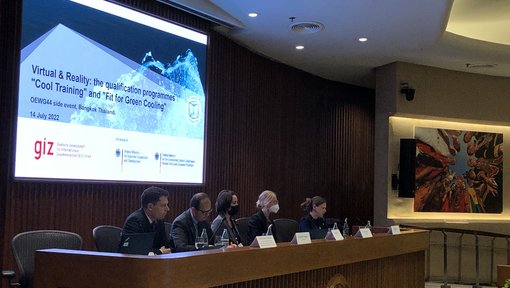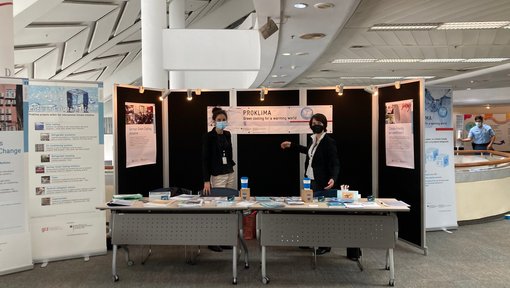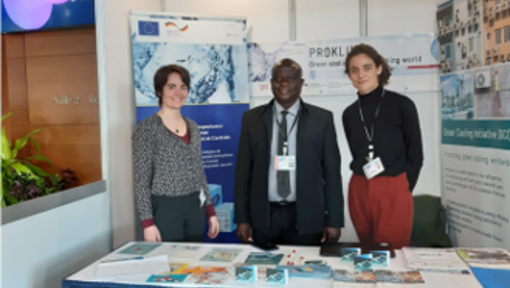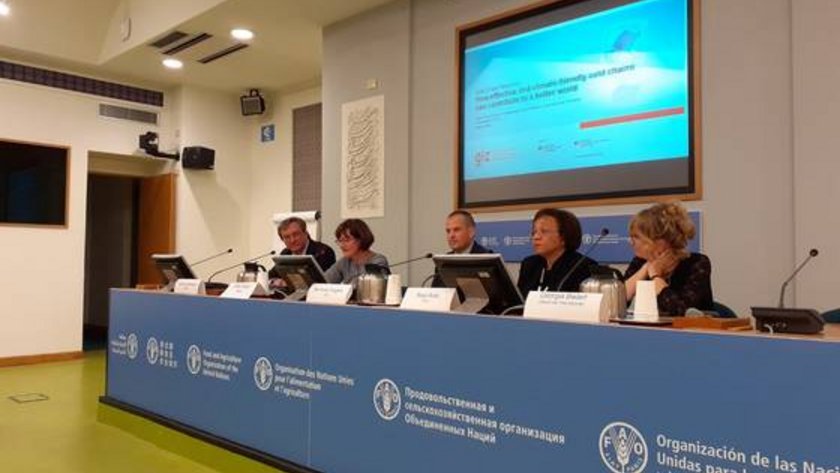Proklimas Side Event I at MOP31 focused on the food and health sector as well as financing strategies.
Ever thought about how fresh food gets to your plate from its source in nature? It has to stay cool, or it will perish. In countries with warm climate this is a challenge. The same is true for most medicines – especially vaccines – they have to be kept cool, or they become ineffective.
Sustainable cold chains are placed at the intersection between the Montreal Protocol, the Paris Agreement and the SDGs. By introducing uninterrupted cold chains for foods and medicines alike, using natural refrigerants with a very low global warming potential, energy efficient appliances and easy to use equipment such as SolarChill refrigerators for off-grid regions, the climate, the health and wellbeing of people and the local economy can profit.
At this year’s MOP, GIZ Proklima addressed three different aspects of the issue during a side event: First, post-harvest-loss expert Mrs. Rosa Rolle (FAO) gave insights on cold chains in the foods industry. Her presentation was followed by Proklima programme manager Mr. Bernhard Siegele, who talked about cold chains in the health sector. After the importance of cold chains had been emphasized, Dr Georgia Badelt (GeoCode International) presented possible financing strategies. The presentations were followed by a lively discussion.
The presentations of this event are available here. (opens in a new window)

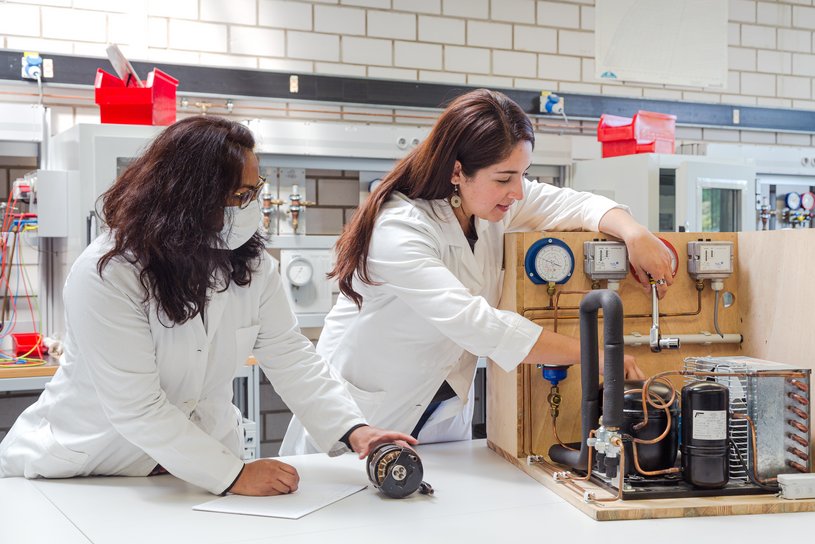 Image: giz / Andreas Döring
Image: giz / Andreas Döring